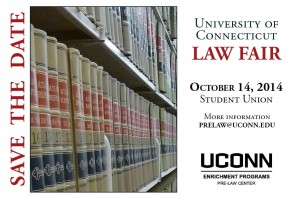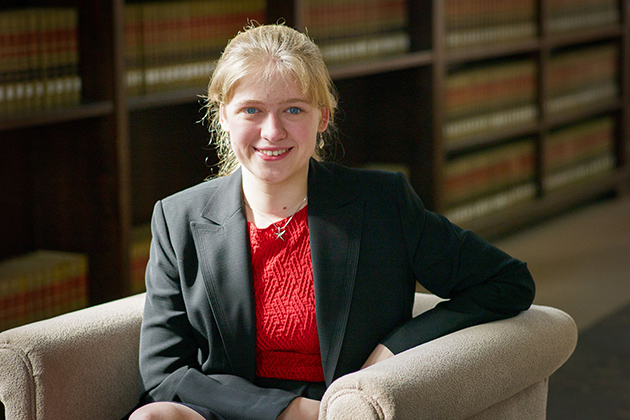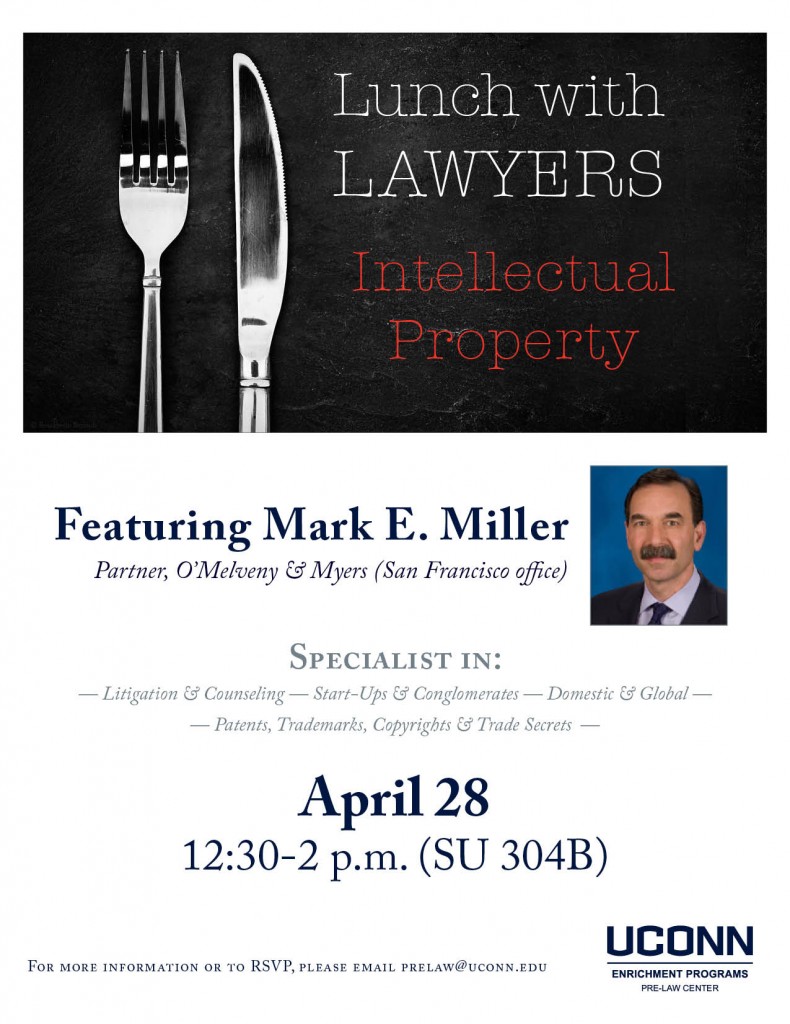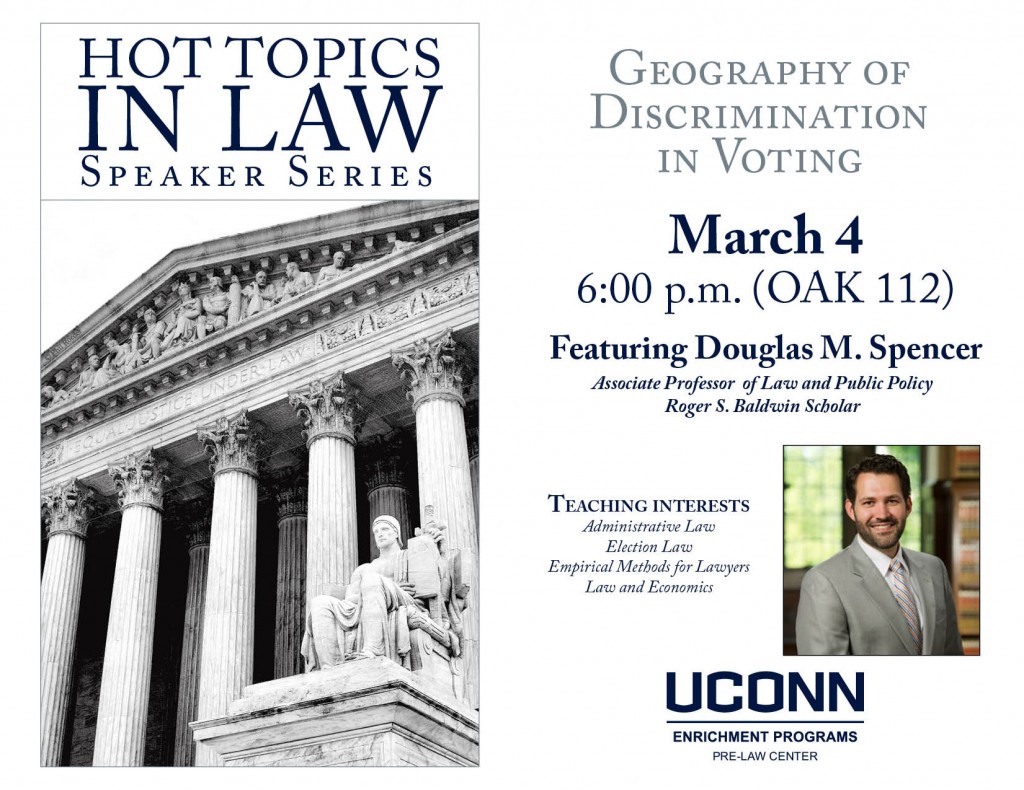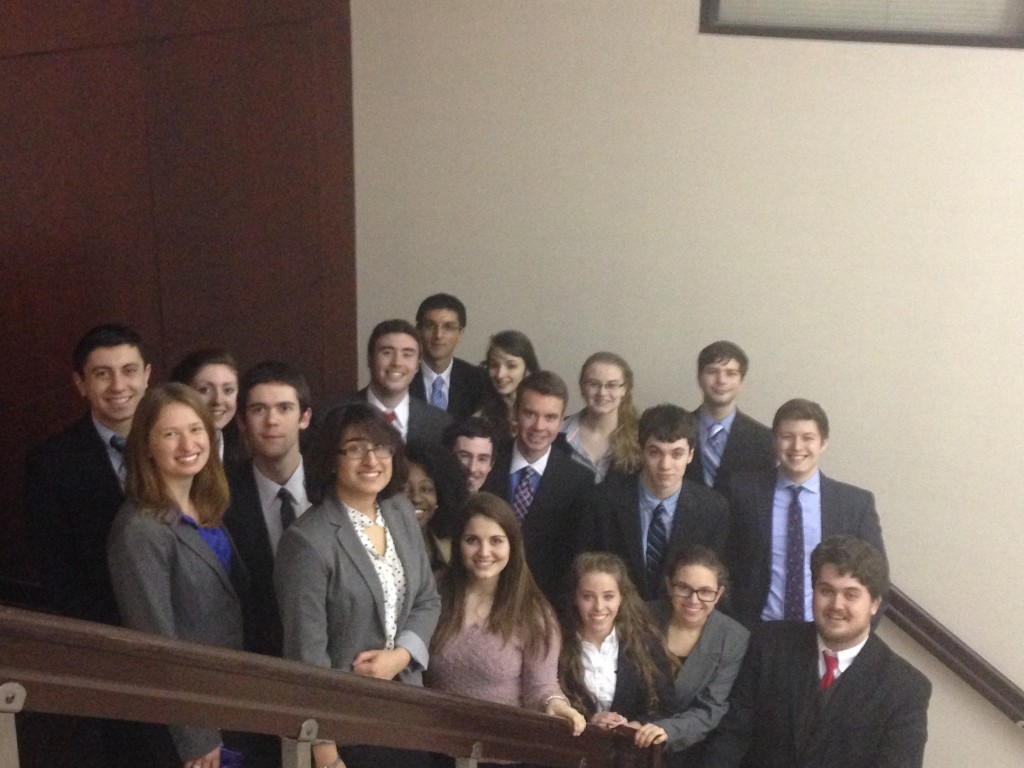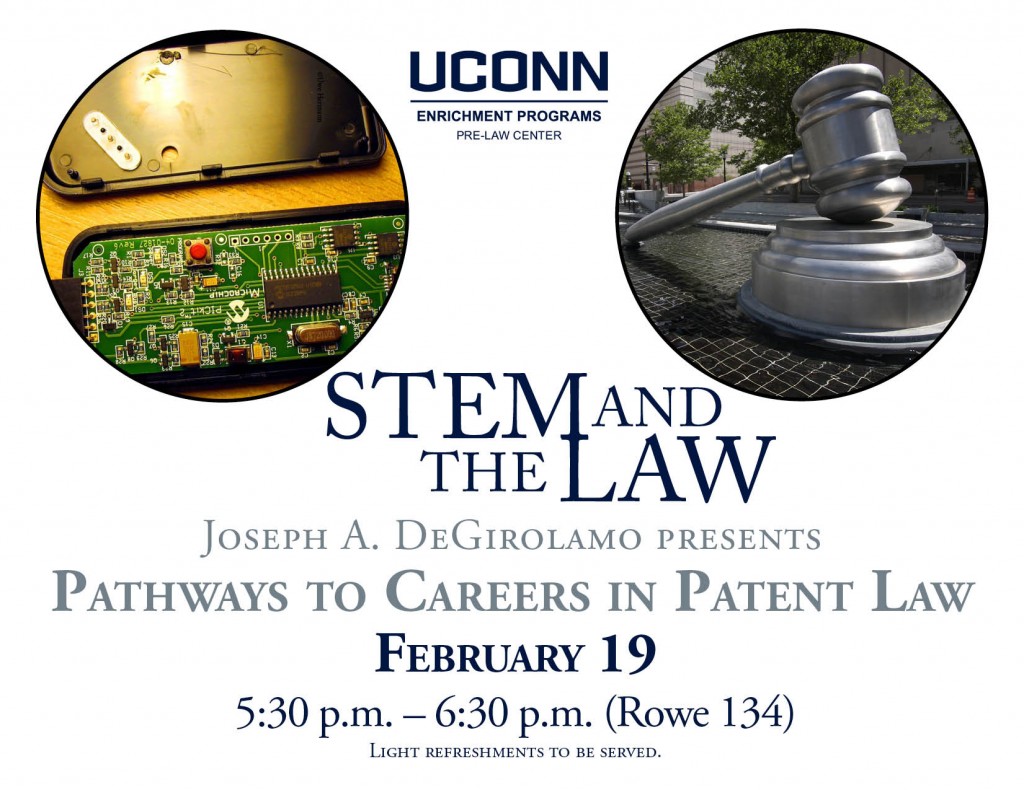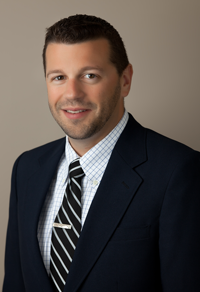 What is your current position? Government Affairs Counsel
What is your current position? Government Affairs Counsel
What year did you graduate from UConn? 2005
Where did you go to law school? How did you choose that school?
Syracuse University College of Law. A large reason I selected Syracuse was the opportunity to also attend the Maxwell School of Citizenship and Public Affairs to pursue a Master of Public Administration jointly with my JD. To clear my name, I set up a UConn Alumni Chapter to brave the Carrier Dome with me each time the Huskies came to town!
What year did you graduate from law school? 2010
UConn Experience
Major: Political Science
How did your major help you prepare for law school and for practice?
At its core, the Poli-Sci major has a large focus on writing and utilizing multiple sources to support a stated position. The major also attracts a large number of debate-prone, students not unlike what you’ll find in you 1L sections! Finally, the concepts of governance, ethics, and how the various legislative, regulatory and judicial arms work together as studied in the classroom inform my practice daily.
What organizations and activities (e.g., clubs, sports, study abroad) did you participate in while at UConn?
UConn Model United Nations
Habitat for Humanity
WHUS
Study Abroad: Rhodes, Greece
What jobs or internships did you have while at UConn?
Connecticut General Assembly
HuskyTech
Did you take any time off?
I took off just over two years before entering law school. I would highly recommend taking time off before taking the plunge into three years of law school. Between UConn and Syracuse I worked in e-commerce and marketing for a sporting goods outfit.
What is one piece of advice you’d give to a current UConn student?
Two specific points. First, only a very small number of attorneys practice in the area of constitutional law. It doesn’t mean you won’t be litigating the next great civil liberties case, but the odds are lower. Second, if you like technology, like I do, and you have an interest in intellectual property and patents you should think about getting a bachelor of science degree to be able to sit for the patent bar or at minimum take the type of classes that would prepare you to take the exam before the exam.
Beyond these points, I would say take as many writing classes as you can. And while there are a number of different types of attorneys, those that are writers and not lecturers, I would still advise you to take up opportunities to boost your confidence level when speaking to groups. If you’re not speaking before a jury or a judge you still would have to talk to your client, or an experienced partner.
Law School Experience
What programs did you participate in during law school?
Moot Court as a participant, coach and now judge. I wrote for a journal as an associate editor and served as the Editor-in-Chief my 3L year. I was also a student member of the Federal Communications Bar Association.
Were you active in any student groups? Which?
Throughout law school I was highly involved with the Communications Law & Policy Society, serving as president my 3L year. This group sponsored panels and conferences at the law school bringing the experts from the field to our halls to discuss the issues of the day in communications law.
Did your involvement with those specific programs or organizations help you in your career path or in any other ways?
Yes. All of these participation helped me either hone the skills I needed as an attorney or provided opportunities to interact with those that work in my field though not in the most obvious ways. Being on a journal helped me to be a better writer, but as Editor-in-Chief I also got experience in managing a team of peers. With the Communications Law & Policy Society I learned a lot about an area I was interested in, but I also met mentors and made friends that I am still in touch with today. Be active but be focused and let your involvement take you where it leads. If you do something you are passionate about not only will you put more in but others will notice it in you.
What is one piece of advice you wish someone had given you before law school?
One is too limiting! Follow around a lawyer for a while before you commit to a three years, and significant debt to the process. The Wall Street Journal and New York Times have followed the legal market and its debt burden with some focus over the past couple years—read up! Internships, and casual conversations with practicing lawyers is a good way to start. Also, work before going straight into law school. It was amazing to see new 1Ls that had never lived on their own struggle with paying bills as well as trying to keep up with the rest of their section. Also the more real life experiences you have the more understandable the coursework will be. Finally, don’t take too seriously the comments and postings from Above the Law and the other blogs out there about school status and rankings. While I’d advise you to go to an ABA accredited school, beyond that the school has to meet your needs and your focus first.
Work Experience
Describe your practice setting.
I work for a national trade association representing the wireless infrastructure industry.
Area(s) of practice.
Administrative Law, Telecommunications, Technology
How did you choose this area of law?
I had a fascination with technology and the Internet specifically and what it enabled. I felt that the laws and policy that existed when I decided to enter into law school had not kept pace with the technology that they were being matched to. They still don’t!
Is there a typical day? How would you describe it?
Sort-of. As a trade association, our clients are our dues paying members from industry. On any given day I am working to ensure that our members are up-to-date on the issues happening in Washington, meeting with those at the FCC, White House, Congress and other federal and state agencies to discuss pending regulatory changes or policy changes. There are also a lot of interesting government counsel type discussions happening internally as related to how our association is run.
How many hours per week do you work? What is your schedule?
It’s hard to say, it really depends on whether we have a regulatory filing due. If we have a filing due, we sometimes will not submit until very late in the evening. Also, D.C. is a bit of a workaholic city, but with that said I would say my schedule is fairly typical. 50-60 hours is probably about where I’d land.
Describe your work/life balance.
As a younger attorney earning more and more responsibility, it’s a struggle. It’s something you have to work on and find a way to put aside your phone.
What do you like most about your job? What would you change?
I like the freedom I have to set the course for how to tackle problems as they are presented to me. I enjoy that I have the ability to work with smart people every day both in government and in industry. I work on projects that can improve the lives of Americans through greater access to broadband and all that it enables. As far as what I’d change, it may have been interesting to have worked in government earlier in my career in a more direct way.
If you couldn’t be a lawyer anymore, what would you do? If you had a career before becoming a lawyer, what was it?
I would have moved out to Silicon Valley and bounced from start-up to start-up.
Just for fun: If you could have dinner with any lawyer, real or fiction, living or dead, who would it be and why?
Ralph Nader because his story of how he rallied public opinion regarding transportation safety is fascinating.
